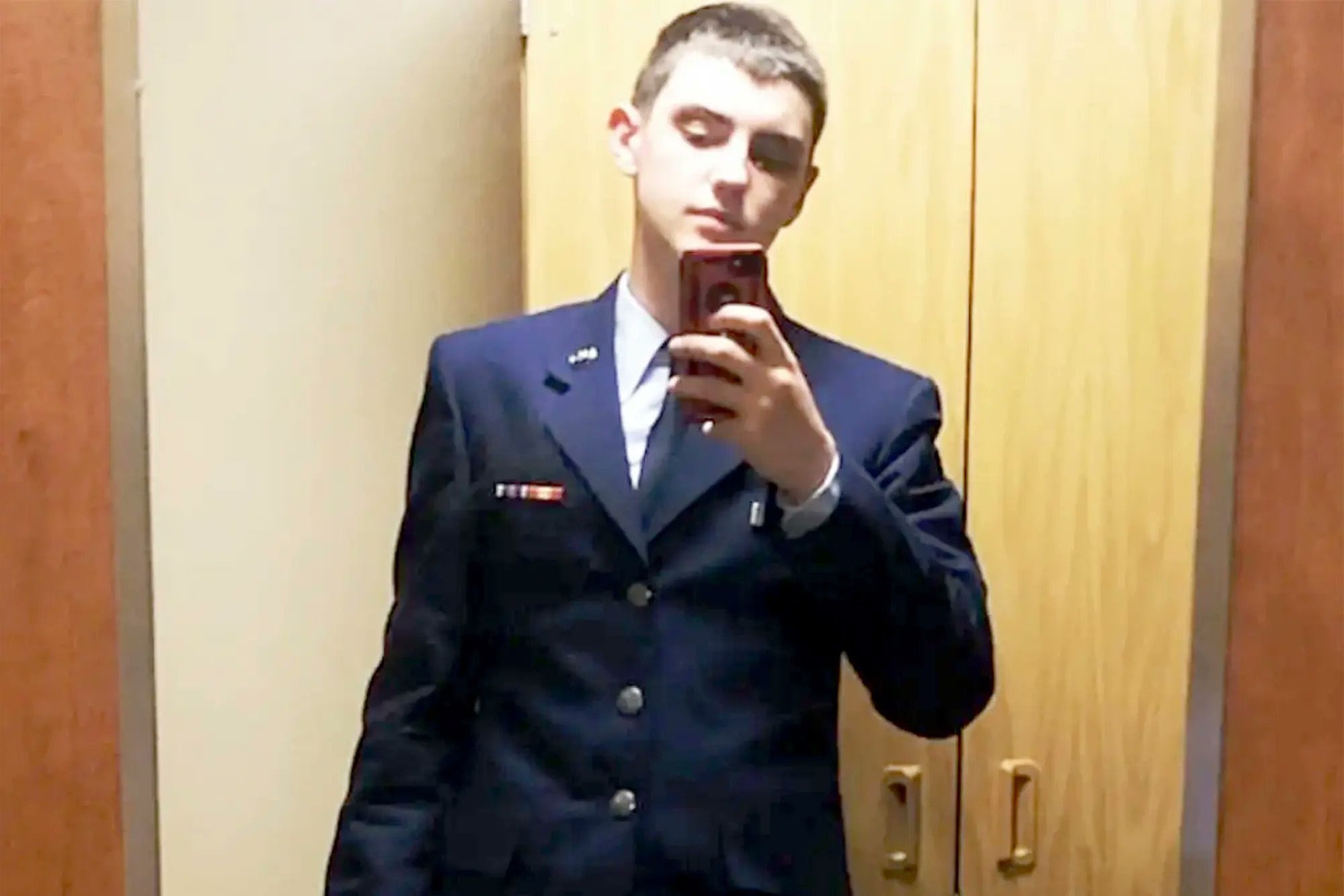FRED KAPLAN

One of the odd mysteries in the case of Jack Teixeira—the 21-year-old airman arrested on Thursday for pilfering and leaking hundreds of highly classified documents to pals online—turns out not to be so odd after all.
The puzzle, as I noted in a column on Thursday, is why the Massachusetts Air National Guard, which is where Teixeira worked, would have access to such material in the first place.
The answer is that Otis Air Base, the Cape Cod home to the Massachusetts Air National Guard, is one of a few northeastern bases for NORAD, the North American Aerospace Defense Command. This means one of its main missions is to detect, track, intercept, and defend against foreign incursions of U.S. air space.
As such, according to a former intelligence officer who still does high-level intelligence analysis, the base would routinely have access to reports and dispatches filed on the Joint Worldwide Intelligence Communication System (JWICS, often pronounced J-Wicks)—and the key word here is worldwide. All information about foreign aircraft, air-defense weapons, military operations, and foreign-policy decisions would be swept up and transmitted throughout the system.
Teixeira was low-ranked—an airman first class is equivalent to the Army’s private first class—but he was working in the base’s intelligence wing. Just to work in that wing, according to the former intelligence officer, he would have had to be granted a TS/SCI security clearance, allowing him to see documents marked “Top Secret/Sensitive Compartmented Information.”
Though it is not yet known what Teixeira’s precise duties were, he was an IT specialist in the intelligence unit, meaning he would have had access to the JWICS—and, once inside that system, he could have searched any topic.
According to the former intelligence officer, several years ago, in response to a spate of leaks, JWICS was modified so that no documents from its files could be downloaded. This may explain why Teixeira, at first, wrote down summaries—in some cases, verbatim transcripts—of intelligence documents, which he then sent to his pals on the Discord gamers’ server.
The Washington Post and New York Times have reported that he later printed out documents, which he folded, took home, photographed, and then emailed to his small band of followers.
This is where serious security questions come into play. The former intelligence officer said that it is not unusual for people on the JWICS network to print documents. However, a record is made of what gets printed, at what time; so, someone, somewhere along the way, should have noticed the possibility of a security breach. It may also be worth asking why nobody noticed such papers in Teixeira’s briefcase as he left the building—or whether, at Otis Air Force Base or many other secure bases, anyone checks briefcases or any other containers at all.
It’s also a worthwhile question whether security officers ever give random polygraph tests to those who handle such high-level documents. (They used to.) The prospect of a lie-detector grilling can be daunting to even the most respectable clearance-holder—and a deterrent to at least some of those who mull about veering off the straight and narrow path.
Finally, it may be time to add more restrictions to the JWICS system, requiring strict need-to-know rules on who gets access to what and imposing a two-key rule, blocking one person on duty from printing—or taking long looks at—sensitive documents unless a colleague signs on.
We don’t yet know exactly how Teixeira did what he did, but it’s fairly clear that he didn’t simply slip through some loopholes; he knew that he was breaking the rules and breaking the law. Upon Teixeira’s arrest on Thursday, Attorney General Merrick Garland said that the airman would be charged with the “unauthorized removal, retention, and transmission of classified national defense information”—a clear reference to the Espionage Act, which carries penalties of up to 30 years in prison or, in extreme cases, death.
Anyone given a high-level security clearance signs a document acknowledging the possible penalties for a violation. The vast majority of those who sign take it seriously. A few don’t, but it doesn’t take many to wreak damage. Yes, a lot—probably most—classified documents are over-classified; a lot of them don’t need to be classified at all. But some secrets should legitimately be secret; as Barack Obama once said, “There’s classified, and there’s classified.” Some of the stuff that Jack Teixeira put online was classified. The system needs to be tightened.
No comments:
Post a Comment